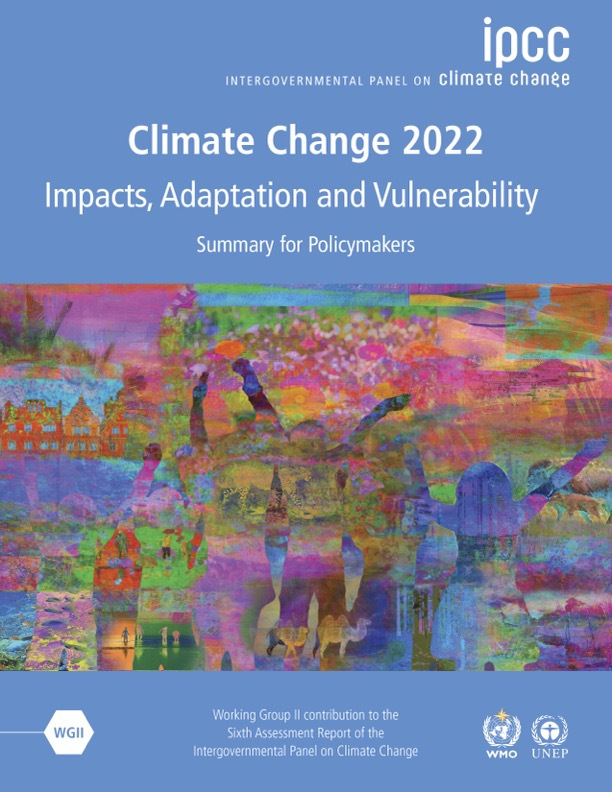The 3,600-page report focuses on the practical impacts of climate change on humans and nature. It follows the first part of the assessment, released last August, that covered the natural science behind global warming. The main message of the new report states that “The cumulative scientific evidence is unequivocal: climate change is a threat to human well-being and planetary health. Any further delay in concerted anticipatory global action on adaptation and mitigation will miss a brief and rapidly closing window of opportunity to secure a liveable and sustainable future for all.”
 The cumulative scientific evidence is unequivocal: climate change is a threat to human well-being and planetary health
The cumulative scientific evidence is unequivocal: climate change is a threat to human well-being and planetary health
On Monday, 28 February 2022, the Working Group II contribution to the IPCC Sixth Assessment Report was published at a press conference. The report titled Climate Change 2022: Impacts, Adaptation and Vulnerability summarizes the evidence of the climate change impacts, focusing on ecosystems, biodiversity, and human communities at global and regional levels. At the same time, the report reviews vulnerabilities as well as capacities and limits of the natural world and human societies to adapt to climate change.
According to UN Secretary-General Antonio Guterres, "[this] IPCC report is an atlas of human suffering and a damning indictment of failed climate leadership". Indeed, according to the UN assessment, many of the impacts of global warming are irreversible, with humans and nature having been already pushed beyond their abilities to adapt. What is more, the threats are already visible and manifested in the shape of storms, fires, droughts, floods and other extreme weather events across the world. Scientists warn that climate change consequences for humanity will be greater than we thought and at lower temperature levels.
However, many projected losses could be reduced if the rise in temperatures is kept below 1.5C: "Our report points out very clearly, this is the decade of action if we are going to turn things around", Prof Debra Roberts, co-chair of the IPCC, stated at the conference. Moreover, Dr Helen Adams, a lead author on the report from King's College London asserted that "one of the things that is really, really clear in the report is that things are bad, but actually, the future depends on us, not the climate". Researchers unanimously conclude that to reduce climate change impacts, we need to radically transform our social systems.
In line with this report's conclusions, EERA is progressively integrating climate adaptation in its work, as the energy sector is prone to climate-related vulnerabilities. On the one hand at the level of technologies, for example, by understanding how climate change is likely to alter river flows, impacting water availability and hydropower generation. But also, by incorporating adaptation at a systemic level, to understand how to make the energy sector, and specifically energy infrastructure, climate resilient.
On the IPCC
The IPCC is now in its sixth assessment cycle, in which it is producing the Sixth Assessment Report (AR6) with contributions by its three Working Groups and a Synthesis Report. The Working Group I contribution to the Sixth Assessment Report, Climate Change 2021: The Physical Science Basis, was released on 9 August 2021. The Working Group II contribution was released on 28 February 2022. Finally, the Working Group III contribution will be released in early April 2022, and the Synthesis Report is scheduled for September 2022.
More information on the Sixth Assessment Report is available on this factsheet here.